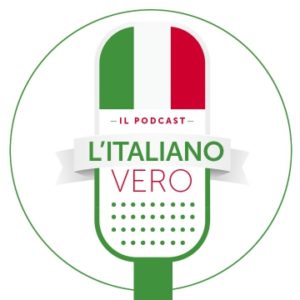
Blog in italiano – tempo di lettura: 4 min
Blog in English – reading time: 4 min
Blog in italiano
________________
Buona settimana a tutti!
Massimo è ancora in vacanza nella sua natìa Montella in Campania e ci racconta della annuale preparazione in famiglia della passata di pomodoro, base della cucina mediterranea e si diverte con un paio di modi di dire strettamente campani…
Sapevate che per i campani essere un “peparuolo” (in italiano: peperone) significa essere ingenuo? E che se qualcuno dice “Mo ti cresimo!” (letteralmente “adesso ti cresimo”) sta minacciando di dare uno schiaffo!? (perchè durante il sacramento della cresima il sacerdote dà un lieve schiaffetto sulla guancia del cresimando).
Cogliamo l’occasione per parlarvi di due personaggi “campani doc” che certamente avrete già sentito nominare…
24 agosto
1862 – La lira diventa moneta nazionale (157 anni fa): A poco più di un anno dall’Unità d’Italia avvenuta nel 1860, il re d’Italia Vittorio Emanuele II introduce l’unificazione monetaria e la lira diventa moneta nazionale.
Lo stampo delle lire viene affidato alla Zecca di Torino, affiancata dagli stabilimenti di Milano e Napoli, gli unici autorizzati a battere moneta.
Cominciano a circolare le prime monete da 5, 10, 20, 50 e 100 (in lega d’oro) accanto ai tagli più piccoli in lega d’argento (1 e 2 lire, 20 e 50 centesimi) e in bronzo (1, 2, 5 e 10 centesimi). Su tutte è impresso il volto del Re, artefice dell’impresa unitaria, e sul dorso lo stemma del regno.
All’inizio restano in circolazione anche le vecchie monete, in uso nelle diverse zone del territorio italiano, come gli zecchini di Venezia, le svanziche del Lombardo-Veneto, gli scudi di Modena, etc.
Dal 1872 iniziano a comparire anche le banconote. di carta.
Dal 1° gennaio 2002 entra in circolazione l’euro, ma nonostante la lira non sia più nei nostri portafogli, resta nella nostra lingua:
Non avere più una lira…significa essere senza soldi;
Valere/costare due lire significa valere/costare davvero poco.
1903 Nasce Peppino De Filippo: Nato a Napoli, Giuseppe De Filippo detto Peppino è stato un maestro dell’arte di far ridere, come pochi nella storia del teatro e del cinema italiano. Attore, comico e drammaturgo tra i più amati del Novecento.
Figlio del celebre drammaturgo Eduardo Scarpetta, da cui non venne riconosciuto, come gli altri due fratelli Eduardo (noto autore e attore teatrale) e Titina (attrice e sceneggiatrice). Cominciò una fulgida carriera come capocomico a teatro e come attore di spicco al cinema e in TV. Sul grande schermo formò con Totò la più celebre coppia comica della storia italiana, che ancora oggi continua a far sorridere con film come La banda degli onesti e Totò, Peppino e… la malafemmina di cui Cubo ci racconta un paio di divertenti scene.
Peppino morì a Roma nel 1980, lasciando la sua eredità artistica al figlio Luigi che ne seguì le orme.
30 agosto
1860 Nasce Joe Petrosino: Nato a Padula, in provincia di Salerno in Campania, Giuseppe Petrosino, detto Joe dagli amici americani, è stato un poliziotto di grande acume investigativo, che sacrificò la propria esistenza per combattere il crimine organizzato.
Giunto in America con la famiglia, come tanti connazionali, per inseguire un futuro migliore, in pochi anni venne messo a capo delle indagini contro quella che allora veniva chiamata Mano nera e che più tardi sarebbe stata conosciuta come Mafia.
Proprio seguendo una pista che avrebbe dovuto portarlo ad infliggere, forse, un decisivo colpo alla Mano Nera, Petrosino era giunto in Italia ma nel momento in cui stava per risalire ai vertici della “cupola” (massimo organo dirigente della mafia, del quale fanno parte i capi designati dalle più potenti famiglie di una determinata area geografica), cadde vittima di un attentato a Palermo, il 12 marzo del 1909.
Negli Stati Uniti è considerato un eroe e annualmente si svolge una giornata commemorativa, celebrata dal Presidente in carica.
E’ anche ricordato nella toponomastica (disciplina che studia i processi di denominazione dei luoghi, il termine deriva dal greco antico topos cioè luogo e onoma cioè nome).
La Rai gli ha dedicato nel 2006 una miniserie interpretata dal bravissimo Giuseppe Fiorello.
Devo ammettere che linkando i film di cui Cubo ci ha raccontato, mi è venuta voglia di guardarmi qualcosa su youtube…non sono un’appassionata di comicità napoletana ma devo ammettere che le scene descritte da Massimo sono davvero divertenti!
Ci sentiamo lunedì prossimo!
by Sara
►Ti piace il nostro podcast? Sostienici al costo di un caffè
senza di voi non ci sarebbe il podcast:
https://www.patreon.com/litalianoveropodcast
►Contattaci per idee su nuovi episodi:
https://www.litalianovero.it/wp/contatti/
►Facebook:
https://www.facebook.com/litalianoveropodcast/
►Instagram:
https://www.instagram.com/litalianoveropodcast/
►YouTube
https://bit.ly/2zvrbOK
Blog in English
________________
Good week everyone!
Massimo is still on vacation in his native Montella in Campania and tells us about the annual family preparation of passata di pomodoro (tomato puree), the basis of Mediterranean cuisine and has fun with a couple of strictly Campanian idioms …
Did you know that for the Campania region essere un “peparuolo” (being a “peperone”) means essere ingenuo (being naïve)? And that if someone says “Mo ti cresimo!” (literally “now I confirm you”) they are threatening dare uno schiaffo (to slap you) !? (this is because during the sacrament of confirmation the priest gives a light slap on the cheek of the confirmation).
We take this opportunity to talk to you about two “Campanian” characters that you have certainly already heard of…
August 24
1862 – The lira becomes the national currency (157 years ago): A little more than a year after the unification of Italy in 1860, the king of Italy Vittorio Emanuele II introduced monetary unification and the lira became the national currency.
The mold of the lire is entrusted to the Zecca (Mint) of Turin, flanked by the factories in Milan and Naples, the only ones authorized to battere moneta (mint coins).
The first coins of 5, 10, 20, 50 and 100 (in gold alloy) begin to circulate alongside the smaller denominations in silver alloy (1 and 2 lire, 20 and 50 cents) and in bronze (1, 2, 5 and 10 cents). All are stamped with the face of the King, creator of the unitary enterprise, and on the back the coat of arms of the kingdom.
At the beginning, the old coins also remained in circulation, in use in different areas of the Italian territory, such as the zucchini (sequins) of Venice, the svanziche (Svanzica) of Lombardy-Venetia, the scudi shields of Modena, etc.
From 1872 banknotes also began to appear. Of paper.
Since January 1, 2002, the euro has been in circulation, but despite the fact that the lira is no longer in our wallets, it remains in our language:
Non avere più una lira (Not having a lira) … means being without money;
Valere/costare due lire (To be worth / to cost two lire) means valere/costare davvero poco (to be worth / to cost very little).
1903 – Peppino De Filippo is born: Born in Naples, Giuseppe De Filippo known as Peppino was a master of the art of making people laugh, like few in the history of Italian theater and cinema. Actor, comedian and playwright among the most loved of the twentieth century.
Son of the famous playwright Eduardo Scarpetta, from whom he was not recognized, like the other two brothers Eduardo (well-known author and theatrical actor) and Titina (actress and screenwriter). He began a brilliant career as a comedian in the theater and as a leading actor in film and TV. On the big screen he formed with Totò the most famous comic couple in Italian history, which still today continues to make people smile with films such as La banda degli onesti (The Band of Honest Men) and Totò, Peppino e … la malfemmina (Totò, Peppino and… the Hussy) of which Cubo tells us a couple of funny scenes.
Peppino died in Rome in 1980, leaving his artistic legacy to his son Luigi who followed in his footsteps.
August 30
1860 – Joe Petrosino is born: Born in Padula, in the province of Salerno in Campania, Giuseppe Petrosino, known as Joe by his American friends, was a policeman of great investigative acumen, who sacrificed his life to fight organized crime.
Arriving in America with his family, like so many compatriots, to pursue a better future, in a few years he was put in charge of the investigations against what was then called Mano Nera (Black Hand) and which would later be known as The Mafia.
Precisely following a path that should have led him to inflict, perhaps, a decisive blow to the Black Hand, Petrosino had arrived back in Italy but at the moment when he was about to rise to the top of the “cupola” “dome” (the highest governing body of the mafia, of which they belong the heads designated by the most powerful families of a given geographical area), fell victim to a fatal attack in Palermo, on March 12, 1909.
In the United States he is considered a hero and annually there is a commemorative day, celebrated by the incumbent President.
He is also mentioned in toponomastica (toponymy – a discipline that studies the processes of naming places, the term derives from the ancient Greek topos that is place and onoma that is name).
RAI dedicated to him in 2006 a miniseries interpreted by the excellent Giuseppe Fiorello.
I must admit that by linking the films Cubo told us about, I felt like watching something on YouTube … I’m not a fan of Neapolitan comedy but I must admit that the scenes described by Massimo are really funny!
See you next Monday!
English by Kevin (ItalianRocks)
►Did you like the podcast? Please support us at the cost of a coffee
without you there would be no podcast:
https://www.patreon.com/litalianoveropodcast
►Contact us for ideas about new podcasts:
https://www.litalianovero.it/wp/contatti/
►Facebook:
https://www.facebook.com/litalianoveropodcast/
►Instagram:
https://www.instagram.com/litalianoveropodcast/
►YouTube
https://bit.ly/2zvrbOK
 Settembre 9, 2019
Settembre 9, 2019 24 min
24 min Luglio 29, 2019
Luglio 29, 2019 13 min
13 min Luglio 15, 2019
Luglio 15, 2019 24 min
24 min Luglio 1, 2019
Luglio 1, 2019 15 min
15 min Giugno 17, 2019
Giugno 17, 2019 21 min
21 min Maggio 30, 2019
Maggio 30, 2019 29 min
29 min Maggio 9, 2019
Maggio 9, 2019 21 min
21 min Aprile 30, 2019
Aprile 30, 2019 28 min
28 min Aprile 17, 2019
Aprile 17, 2019 15 min
15 min Aprile 10, 2019
Aprile 10, 2019 24 min
24 min Aprile 3, 2019
Aprile 3, 2019 24 min
24 min Gennaio 26, 2020
Gennaio 26, 2020 21 min
21 min Gennaio 12, 2020
Gennaio 12, 2020 20 min
20 min Dicembre 29, 2019
Dicembre 29, 2019 24 min
24 min Dicembre 15, 2019
Dicembre 15, 2019 21 min
21 min Dicembre 1, 2019
Dicembre 1, 2019 12 min
12 min Novembre 17, 2019
Novembre 17, 2019 min
min Novembre 3, 2019
Novembre 3, 2019 20 min
20 min Ottobre 20, 2019
Ottobre 20, 2019 14 min
14 min Ottobre 7, 2019
Ottobre 7, 2019 9 min
9 min Settembre 23, 2019
Settembre 23, 2019 33 min
33 min Gennaio 9, 2024
Gennaio 9, 2024 6 min
6 min Dicembre 2, 2022
Dicembre 2, 2022 31 min
31 min Ottobre 8, 2022
Ottobre 8, 2022 18 min
18 min Dicembre 25, 2021
Dicembre 25, 2021 1 min
1 min Settembre 18, 2021
Settembre 18, 2021 21 min
21 min Agosto 14, 2021
Agosto 14, 2021 17 min
17 min Maggio 4, 2020
Maggio 4, 2020 32 min
32 min Aprile 12, 2020
Aprile 12, 2020 41 min
41 min Agosto 26, 2019
Agosto 26, 2019 18 min
18 min Agosto 12, 2019
Agosto 12, 2019 11 min
11 min Giugno 5, 2019
Giugno 5, 2019 9 min
9 min







Leave a Comment